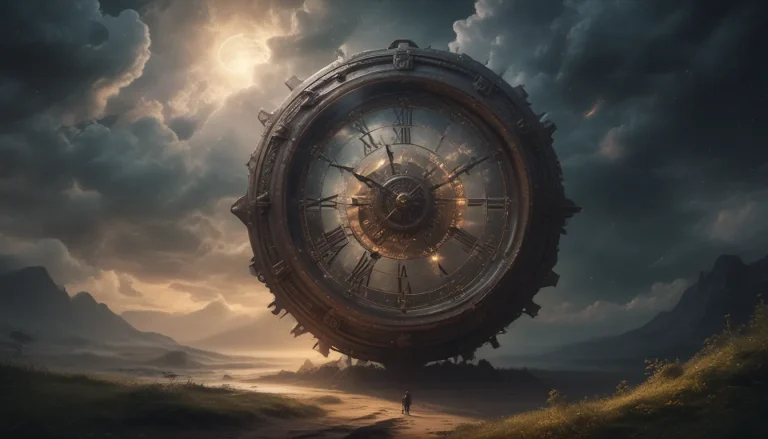Introduction
Have you ever woken up from a vivid dream, wondering what it all meant? The question “does dream have meaning” has puzzled humanity for centuries. From ancient civilizations to modern psychologists, people have long sought to understand the significance of these nightly visions that dance through our minds as we sleep.
Dreams have captivated our imagination and sparked countless debates about their purpose and meaning. Some believe dreams are merely random firings of neurons, while others insist they hold profound insights into our subconscious minds. In this blog post, we’ll dive deep into the world of dreams, exploring various perspectives and scientific findings to help you better understand the potential meaning behind your nocturnal adventures.
Key Takeaways
- Dreams have fascinated humans throughout history, with various cultures attributing different meanings to them.
- Scientific research suggests dreams may play a role in memory consolidation and emotional processing.
- While some experts believe dreams have symbolic meanings, others view them as random neural activity.
- Understanding your dreams may provide insights into your emotions, experiences, and subconscious thoughts.
- Various techniques can help you remember and analyze your dreams more effectively.
The Historical Significance of Dreams

Throughout human history, dreams have held a special place in various cultures and belief systems. Ancient civilizations often viewed dreams as divine messages or prophetic visions. Let’s take a brief look at how different cultures have interpreted dreams:
- Ancient Egypt: Egyptians believed dreams were messages from the gods and used dream books to interpret their meanings.
- Ancient Greece: Greeks saw dreams as a way to communicate with the dead or receive guidance from deities.
- Native American cultures: Many tribes considered dreams as journeys of the soul and used them for guidance in decision-making.
- Chinese culture: Dreams were thought to be a way for the soul to leave the body and explore other realms.
- Biblical references: In the Bible, several important events are foretold or revealed through dreams.
This rich history of dream interpretation has laid the foundation for many modern theories about the meaning of dreams.
Scientific Perspectives on Dream Meaning

In the realm of science, researchers have made significant strides in understanding the nature and potential purpose of dreams. While there’s still much to learn, several theories have emerged:
Memory Consolidation Theory
One widely accepted theory suggests that dreams play a crucial role in memory consolidation. During sleep, particularly during the Rapid Eye Movement (REM) stage, our brains process and organize information from our waking lives. This process may help strengthen important memories and discard unnecessary details.
Emotional Processing
Dreams might also serve as a way for our minds to process and regulate emotions. By revisiting and reimagining emotional experiences in our dreams, we may be better equipped to handle similar situations in our waking lives.
Problem-Solving and Creativity
Some researchers believe that dreams can enhance our problem-solving abilities and boost creativity. The unconstrained nature of dreams may allow our minds to make unique connections and generate novel ideas.
Random Activation Theory
Not all scientists believe dreams have inherent meaning. The random activation theory suggests that dreams are simply the result of random neural firing as our brains go through maintenance processes during sleep.
Psychological Perspectives on Dream Meaning

Psychology has long been fascinated with dreams and their potential meanings. Several influential thinkers have proposed theories about dream interpretation:
Freudian Dream Analysis
Sigmund Freud, the father of psychoanalysis, believed that dreams were a window into our unconscious desires and repressed thoughts. He argued that dreams often represented wish fulfillment and that their symbolic content could reveal hidden aspects of our psyche.
Jungian Dream Interpretation
Carl Jung, a student of Freud who later developed his own theories, saw dreams as messages from the unconscious mind. He believed that dreams used universal symbols, which he called archetypes, to communicate important information about our psychological development.
Modern Psychological Approaches
Contemporary psychologists often take a more balanced approach to dream interpretation. While they may not ascribe specific meanings to particular dream symbols, many believe that analyzing dreams can provide valuable insights into a person’s thoughts, feelings, and experiences.
Common Dream Themes and Their Potential Meanings
While dream interpretation is highly subjective, certain dream themes appear to be relatively common across cultures. Here are some frequently reported dream scenarios and their potential meanings:
- Falling: Often associated with feeling out of control or anxious about a situation in waking life.
- Being chased: May represent avoiding a problem or feeling threatened by something in your life.
- Flying: Could symbolize a sense of freedom, overcoming obstacles, or gaining a new perspective.
- Teeth falling out: Might reflect anxiety about appearance, communication, or loss of power.
- Being naked in public: Often related to feelings of vulnerability or fear of exposure.
- Taking a test: Could represent self-evaluation, fear of failure, or feeling unprepared for a challenge.
- Death: While unsettling, dreams about death often symbolize change, transformation, or the end of a phase in life.
Remember, these interpretations are not definitive. The meaning of a dream can vary greatly depending on the individual’s personal experiences and emotions.
Techniques for Remembering and Analyzing Your Dreams
If you’re interested in exploring the potential meanings of your dreams, here are some techniques to help you remember and analyze them:
- Keep a dream journal: Place a notebook and pen by your bed and write down your dreams immediately upon waking.
- Set an intention: Before going to sleep, tell yourself that you will remember your dreams.
- Wake up slowly: Allow yourself to linger in a half-awake state to better recall dream details.
- Look for patterns: Notice recurring themes, emotions, or symbols in your dreams over time.
- Consider your current life situation: Reflect on how your dreams might relate to your waking experiences and emotions.
- Practice mindfulness: Regular meditation can increase dream recall and awareness.
- Discuss with others: Sharing your dreams with trusted friends or a therapist can provide new perspectives.
The Role of Dream Interpretation in Therapy
Many therapists incorporate dream analysis into their practice, believing that dreams can offer valuable insights into a client’s psychological state. Here’s how dream interpretation can be beneficial in a therapeutic setting:
- Uncovering unconscious thoughts: Dreams may reveal feelings or ideas that the dreamer is not consciously aware of.
- Exploring emotions: Discussing dreams can help clients process complex emotions in a safe environment.
- Identifying patterns: Recurring dream themes may highlight ongoing issues or concerns in a person’s life.
- Enhancing self-awareness: Analyzing dreams can lead to a deeper understanding of oneself and one’s motivations.
- Promoting creative problem-solving: Dream imagery can inspire new approaches to real-life challenges.
It’s important to note that professional dream interpretation should be done in conjunction with other therapeutic techniques and not relied upon as a sole method of treatment.
Cultural Differences in Dream Interpretation
The way dreams are interpreted can vary significantly across cultures. Understanding these differences can provide a broader perspective on the question “does dream have meaning”:
- Western cultures often focus on individual psychological interpretations.
- Eastern cultures may emphasize spiritual or collective meanings in dreams.
- Some African cultures view dreams as communications from ancestors or spirits.
- Certain indigenous cultures use dreams for healing and decision-making in community matters.
These cultural variations highlight the diverse ways in which humans have sought to understand and derive meaning from their dreams throughout history.
The Impact of Modern Technology on Dreaming
In our increasingly digital world, technology is beginning to influence how we dream and interpret those dreams:
- Dream apps: Smartphone applications now exist to help record and analyze dreams.
- Virtual reality: Some researchers are exploring the use of VR to influence or even control dream content.
- Social media: Sharing dreams online has become more common, leading to collaborative interpretation.
- AI dream analysis: Artificial intelligence is being developed to identify patterns in large sets of dream data.
While these technological advancements offer new tools for dream exploration, they also raise questions about the nature of dreaming in the digital age.
Conclusion: So, Do Dreams Really Have Meaning?
After exploring various perspectives on dream interpretation, from ancient beliefs to modern scientific research, we can conclude that the answer to “does dream have meaning” is not straightforward. Dreams can be meaningful in several ways:
- They may reflect our subconscious thoughts and emotions.
- Dreams could play a role in memory consolidation and problem-solving.
- Analyzing dreams might provide insights into our waking lives and psychological state.
- Cultural and personal beliefs can imbue dreams with significant meaning for individuals.
However, it’s important to approach dream interpretation with a balanced perspective. While dreams can offer valuable insights, they shouldn’t be seen as direct messages or prophecies. The meaning we derive from our dreams is often influenced by our personal experiences, beliefs, and the lens through which we choose to view them.
Ultimately, whether dreams have meaning may depend on how we choose to engage with them. By paying attention to our dreams and reflecting on their possible connections to our waking lives, we can potentially gain a deeper understanding of ourselves and our experiences.
Whether you see dreams as random neural firings or windows into the soul, one thing is certain: the world of dreams remains a fascinating frontier of human consciousness, inviting us to explore, question, and wonder about the mysteries of our sleeping minds.







